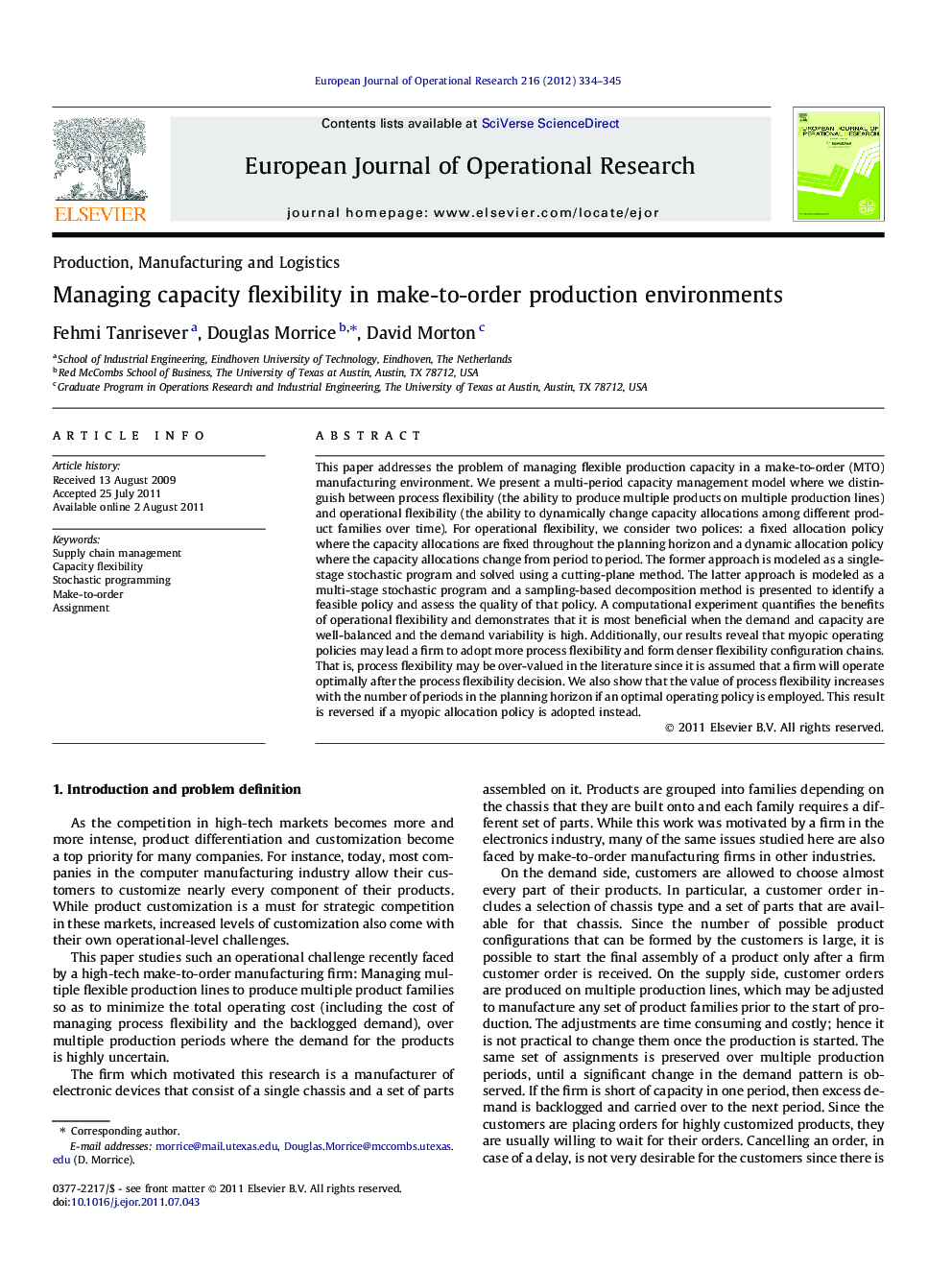| Article ID | Journal | Published Year | Pages | File Type |
|---|---|---|---|---|
| 480172 | European Journal of Operational Research | 2012 | 12 Pages |
This paper addresses the problem of managing flexible production capacity in a make-to-order (MTO) manufacturing environment. We present a multi-period capacity management model where we distinguish between process flexibility (the ability to produce multiple products on multiple production lines) and operational flexibility (the ability to dynamically change capacity allocations among different product families over time). For operational flexibility, we consider two polices: a fixed allocation policy where the capacity allocations are fixed throughout the planning horizon and a dynamic allocation policy where the capacity allocations change from period to period. The former approach is modeled as a single-stage stochastic program and solved using a cutting-plane method. The latter approach is modeled as a multi-stage stochastic program and a sampling-based decomposition method is presented to identify a feasible policy and assess the quality of that policy. A computational experiment quantifies the benefits of operational flexibility and demonstrates that it is most beneficial when the demand and capacity are well-balanced and the demand variability is high. Additionally, our results reveal that myopic operating policies may lead a firm to adopt more process flexibility and form denser flexibility configuration chains. That is, process flexibility may be over-valued in the literature since it is assumed that a firm will operate optimally after the process flexibility decision. We also show that the value of process flexibility increases with the number of periods in the planning horizon if an optimal operating policy is employed. This result is reversed if a myopic allocation policy is adopted instead.
► We model a multi-period capacity management problem. ► The model incorporates multiple products on multiple production lines. ► It also includes dynamic capacity allocations among product families. ► We consider fixed and dynamic allocation policies and quantify their benefits. ► We show that process flexibility may be over-valued in the extant literature.
